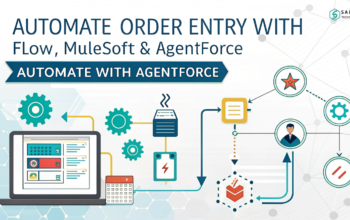What is CPQ? A Comprehensive Guide to Configure, Price, Quote Solutions
In the world of sales, managing complex product configurations, pricing models, and generating accurate quotes can be time-consuming and prone to errors. This is where CPQ (Configure, Price, Quote) software comes into play. Whether you’re in the business of selling physical products, software, or services, CPQ helps streamline the sales process by automating the way you configure products, apply pricing rules, and generate quotes. But what exactly is CPQ, and why is it essential in modern sales? Let’s break it down.
What is CPQ?
CPQ stands for Configure, Price, Quote, a term that refers to a category of software designed to assist businesses with the following key sales functions:
- Configure: Enabling sales teams to configure complex product or service offerings based on the customer’s specific needs.
- Price: Automating the application of pricing rules, discounts, and promotions to ensure accurate pricing.
- Quote: Generating professional, accurate, and legally compliant quotes or proposals based on the configured product and price details.
Essentially, CPQ tools simplify the customization and quoting process, making it faster, more accurate, and more scalable for businesses.
The Role of CPQ in Sales
CPQ software is especially valuable in industries where products or services come with a lot of customization options, such as manufacturing, IT services, SaaS, and telecom. Without CPQ, sales reps would have to manually select product configurations, calculate prices, and create quotes—an error-prone and time-consuming process. CPQ solves these challenges by:
- Reducing Errors: CPQ ensures that all configurations are compatible and meet company rules, which eliminates errors caused by manual data entry or oversight.
- Speeding Up the Sales Cycle: By automating the configuration and pricing process, sales teams can generate quotes much faster, reducing the time to close deals.
- Increasing Deal Value: CPQ systems often include upsell and cross-sell suggestions, which can help increase the average deal size.
- Improving Accuracy: With pre-programmed pricing rules, discount guidelines, and approval workflows, CPQ ensures that every quote generated is accurate, up-to-date, and meets company policies.
Key Features of CPQ Software
CPQ software provides a range of features that simplify the sales process. Some of the most essential features include:
- Product Configuration: Sales teams can configure products or services based on customer requirements, using predefined rules to ensure the configurations are valid and feasible.
- Dynamic Pricing: CPQ tools can handle complex pricing models, including tiered pricing, volume discounts, customer-specific pricing, and bundling.
- Approval Workflows: When a deal includes special discounts or terms, CPQ automates the approval process, ensuring that it’s sent to the right stakeholders for review.
- Automated Quotes & Proposals: With CPQ, sales teams can generate professionally formatted quotes and proposals, complete with product descriptions, pricing, terms, and conditions.
- Guided Selling: Some CPQ tools offer guided selling features that help sales reps identify the best product or service options based on customer needs, ensuring the optimal solution is offered.
- Integration with CRM & ERP: CPQ often integrates with CRM (like Salesforce) and ERP systems, providing a seamless transition from customer relationship management to financial and inventory management.
Who Uses CPQ Software?
CPQ software is widely used across various industries, including:
- Manufacturing: To configure complex products with many customizable components.
- Software and SaaS: To offer various tiers and pricing models for digital products.
- Telecommunications: To manage bundled services and customized plans.
- Healthcare: To quote and configure medical devices or custom treatment packages.
- Financial Services: To generate accurate quotes for insurance, loans, and investment products.
The Benefits of Implementing CPQ
- Enhanced Efficiency: Automating manual tasks like configuration, pricing, and quoting allows sales teams to focus more on relationship building and closing deals.
- Faster Sales Cycles: By reducing the time spent on back-and-forth corrections and approvals, CPQ speeds up the entire sales process, getting quotes out the door faster.
- Improved Customer Experience: CPQ systems can provide tailored solutions that meet the customer’s exact needs, enhancing customer satisfaction and trust.
- Greater Scalability: CPQ software can easily scale with the business, allowing companies to handle more complex deals as they grow.
- Increased Revenue: Features like upselling, cross-selling, and dynamic pricing help maximize deal value, leading to increased revenue.
Popular CPQ Solutions
There are several popular CPQ software platforms on the market, each designed to integrate seamlessly with existing business tools:
- Salesforce CPQ: One of the most popular choices, especially for organizations already using Salesforce CRM. It offers robust integration, scalability, and customization.
- Oracle CPQ: A powerful solution for enterprise-level organizations, offering extensive configuration capabilities and seamless integration with Oracle’s broader suite of applications.
- SAP CPQ: Ideal for large organizations with complex pricing models and international operations, SAP CPQ is known for its flexibility and scalability.
- HubSpot CPQ: A simpler, more accessible solution designed for small and medium businesses that want to automate their sales processes with minimal complexity.
Conclusion
CPQ software is a game-changer for businesses looking to optimize their sales processes, reduce errors, and accelerate deal closures. By automating the configure, price, and quote stages, CPQ frees up sales teams to focus on building relationships and closing more deals, all while improving accuracy and efficiency.
If you’re in a business where product or service configurations are complex, adopting CPQ software can significantly enhance your sales performance and customer experience.



